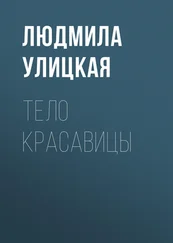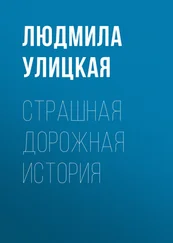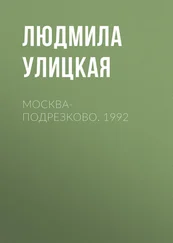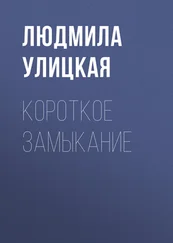The priest from the Preobrazhenka church, which Masha had attended occasionally over the last few years, was deeply saddened but refused to conduct a funeral service for a suicide, so Medea asked to be taken to a Greek church. The most Greek of the Moscow churches was one affiliated to the Antioch congregation. There, in the church of Theodore Stratilatos, she asked to see the dean, but the serving woman subjected her to an interrogation. While she was explaining, with her lips pursed and her eyes lowered, that she was a Pontic Greek and had not been in a Greek church for many years, an old hieromonk came up and said in Greek, “I can recognize a Greek woman from a long way off. What is your name?”
“Medea Sinoply.”
“Sinoply . . . Is your brother a monk?” he asked quickly.
“One of my brothers went to a monastery in the 1920s, in Bulgaria. I have had no news of him since.”
“Agathon?”
“Athanasii.”
“Praise be to the Lord,” the hieromonk exclaimed. “He is a hermit on Mount Athos.”
“Glory be to the Lord.” Medea bowed.
They had some difficulty understanding each other. The old man proved to be not Greek but Syrian. His Greek and Medea’s were very different. They talked for over an hour sitting on a bench beside the candle box. He told her to bring the girl and promised to conduct the service himself.
When the bus with the coffin arrived at the church, a crowd had already assembled. The Sinoply family had representatives of all its branches: Tashkent, Tbilisi, Vilnius, and Siberia. The various golds of the church’s icon frames, candlesticks, and vestments were complemented by the different shades of copper on Sinoply heads.
Ivan Isaevich stood between Medea and Alexandra, a broad man with a floury pink face and an asymmetrical wrinkle running obliquely across his forehead. The elderly sisters standing before the coffin adorned with white and lilac-colored hyacinths both had the same thought: “It would be more fitting for me to be lying there among these flowers which Nike has arranged so beautifully, and not poor Masha.”
In the course of a long life they had learned to live with death, to be at ease with it: they had learned to meet it at home, veiling the mirrors, living two strict, quiet days in the presence of the body to the murmuring of psalms and the flickering of candles. They had known peaceful departings, painless and dignified; they had known of death at the hands of roughnecks, and the lawless invasion of death when the young perished in the lifetime of their parents.
But suicide was more than anyone could bear. What reconciliation could there be to that fleeting moment when a young lively girl had leapt of her own volition out into the slow rumbling whirlpool of snowflakes and out of life.
The hieromonk came out to the coffin, and the choir began singing the most expressive words of all those composed in times of earthly leave-taking and separation. The service was in Greek and even Medea understood only certain words, but all those present could clearly feel that in this bitter, inaccessible singing there was more meaning than even the wisest sage can contain within himself.
Those who wept, wept silently. Aldona wiped away her tears with a man’s checkered handkerchief. Gvidas the Hun nervously wiped a leather glove under his eye. Debora Lvovna, Masha’s mother-in-law, was all for wailing in loud lamentation, but Alik gave his doctor friends the nod and they led her from the church.
Masha was buried in the Foreigners’ Cemetery, in the same grave as her parents, and then everyone went back to Uspensky Lane: Alexandra Georgievna had insisted on having the funeral party there. There were a lot of people, and there was space at the table only for the older ones and relatives who had come a long way. The young people were all on their feet, with glasses and bottles.
Little Alik found a moment to ask his father in a whisper, “Daddy, do you think she has died for always?”
“Soon everything will change and then everything will be fine,” his father answered diplomatically.
Little Alik gave him a long, cold look. “Well, I don’t believe in God.”
On the morning of that day, their permission to emigrate had arrived. They were given twenty days to pack their things, which was fairly generous. In the memory of their friends the farewell merged with the funeral party, although Alik arranged it in Cheryomushki.
Debora Lvovna duly stayed with her sister, and Alik left with his son and a checkered medium-sized Bulgarian suitcase. The customs officials took one sheet of paper from him—Masha’s last poem, written shortly before her suicide. Needless to say, he knew it by heart.
Researching lures the intellectual sleuth
to hurl himself into his sweet researches.
He plots the ways of pigeons, or he lurches
through dusty tavern vaults in search of truth;
But even as he struggles to attain
experience appearances belying—
he will himself become the pigeon’s wing,
the demon drink of all his mental prying;
And beavering to secure our daily bread,
removed from fears and cares and snares infernal,
we stand in awe and meekly bow our head
before a soul dissolved in fame eternal.
EPILOGUE
The last time my husband and I were in the Village was in the summer of 1995. Medea had passed on long before. A Tatar family was living in her house, and we didn’t feel right about going in to trouble them. We went to see Georgii. He built his house even higher up than Medea’s and drilled his artesian well. His wife Nora still looks like a child, although close up you can see that the skin under her eyes is dissected by fine wrinkles, which is how the most delicate blondes age.
She has given Georgii two daughters.
The house was very full. I had difficulty recognizing these young people as the grown-up children of the 1970s. A fiveyear-old girl with ginger curls who looked very like Liza was throwing a tantrum over some kind of little-girl nonsense.
Georgii was glad to see my husband, whom he hadn’t seen for a long time. My husband is a Sinoply too, not from Harlampy’s branch, but from that of his younger sister Polixena. They calculated the degree of their relatedness at great length before deciding they were third cousins.
Georgii took us to the graveyard. Medea’s cross stands next to Samuel’s obelisk, and modestly yields to it in height. Georgii told us on the way back how unpleasantly surprised Medea’s relatives had been when a will was discovered after her death leaving the house to a Ravil Yusupov nobody knew anything about.
They made no attempt to trace this Yusupov, and Georgii moved into Medea’s house with Nora, Tanya, and their little daughters. He got a job at the research station.
Ravil appeared a few years later, in just the same way as when he had come to see Medea, late on an early spring evening. Georgii produced the will out of the trunk and showed it to him. Several more years were to pass, however, before Ravil could take possession of his house. For two years there was an absurd lawsuit to change the registration of ownership of the house, and this was ultimately achieved purely through Georgii’s doggedness in taking the case all the way to the republican level in order to have Medea’s will proved. After that, everyone in the Village considered him completely mad.
He is past sixty now, but as strong and sturdy as ever. He was given a lot of help in building his own house by Ravil and his brother. When the house was completed, the people in the Village changed their minds and now say Georgii was fiendishly cunning: instead of getting Medea’s ramshackle old house, he has a new one twice as big.
Читать дальше
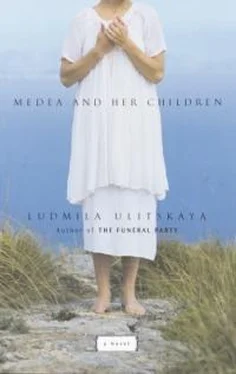
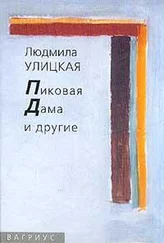
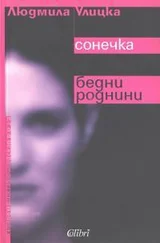

![Людмила Улицкая - Сквозная линия [litres]](/books/393468/lyudmila-ulickaya-skvoznaya-liniya-litres-thumb.webp)
